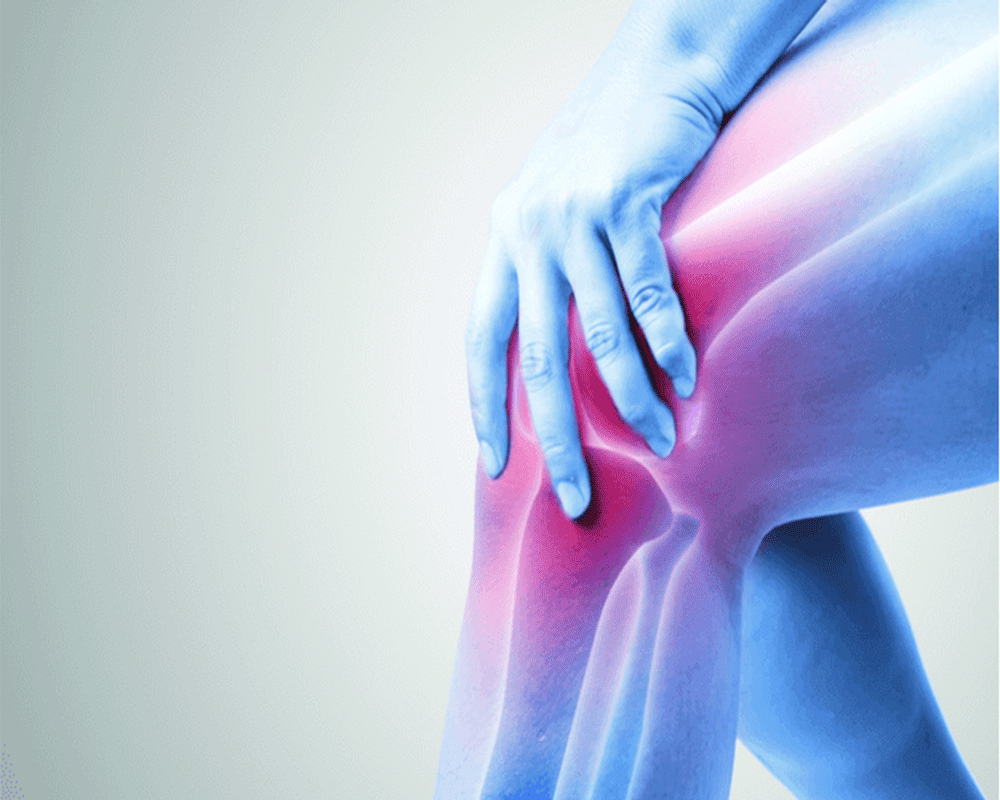According to WHO, approximately 30 per cent of the world's population suffers from pain. While most patients resort to surgery as the last option, DR BIREN NADKARNI tells you to not let fear of surgery keep you from doing something about the pain
Chronic pain in multiple joints affect one in four adults over the age of 18. By the time we get to age 65, about two in five adults are affected. According to WHO, approximately 30 per cent of the world’s population suffers from pain. Many patients in need of joint replacement surgery are postponing their procedures because of pandemic-related concerns.
COVID-19 pandemic has changed everyone’s mindset around. There is no doubt that fear from such a dreaded infection has scared everyone to think with sense of security to come out openly and of course think 10 times to undergo any planned surgical procedure like knee or hip replacement.
Many patients who suffer from chronic debilitating hip and knee pain have been very confused and stressed about proceeding with surgery, not knowing if they can and not knowing what their options are. The reality is that, even without the stress of a pandemic, people often wait far too long to consider a more permanent solution to their severe or persistent joint pain — joint replacement.
By the time people get to a conversation about joint replacement, they have pain on a daily basis and it’s occupying a disproportionate part of their lives. It’s the kind of pain that leads them to become less active, whether athletically or socially, and many people get to the point where the pain becomes such a big part of their lives, they become unhappy.
While many people would rate their joint pain as difficult and debilitating, they often view surgery as a last-resort treatment. Do not let fear of joint surgery or coronavirus keep you from doing something about your joint pain.
Joint pain due to underlying degenerative or inflammatory arthritis is usually managed non-operatively initially. A stage comes when these modalities don’t work any longer and patients tend to become bedridden and analgesic dependent. Uncontrolled pain, which is the most important reason for undergoing joint replacement surgery, can cause sleep disturbance, depression, state of hopelessness. These patients opt for joint replacement surgery so that they can get their life back and be independently mobile.
Patients are suffering, not only in their mobility and comfort but in their general health too. The vast majority of the time, these patients will rehab and return to their pre-decline baseline. My fear with patients who are putting the surgery off due to the fear of coronavirus is that they will get to the point where their rehab becomes difficult or impossible to do. If you get debilitated to the point that you can’t do that rehab, then the recovery is going to be tough.
Surgical technique and technology improvements have reduced recovery time, making joint replacement surgery more efficient, predictable and less painful. This means people not only regain function more rapidly after surgery, but data also shows that patients usually return to their jobs within six weeks. We’re also better at controlling patient’s pain before, during and after surgery with new medications and using older medications a bit differently, depending on the patient’s needs.
Is it safe to get the joint replacement surgery at this time?
The answer is, yes. We know that any patient who needs joint replacement has psychological pressure of being exposed to COVID-19. Hospitals have gone to great lengths to make the elective surgeries very safe in the inpatient setting. Hospitals are completely following Centers for Disease Control and Prevention guidelines and keeping surgical patients on separate floors from the COVID patients. Because there are very strict, smart protocols in hospitals for safety measures with current norms and there is complete segregation of non-COVID and COVID patients, wards & operation theatres.
If you’re considering a joint replacement, know that hospitals and clinics are safe and taking extra precautions, including:
- Requiring all patients, visitors and employees to wear masks
- Screening patients and employees upon arrival
- Isolating COVID-19 patients from other patients, allowing us to treat everyone safely
- Practicing social distancing in our waiting rooms
- Utilising video visits to reduce patient traffic
- Increasing housekeeping and vigilance in our disinfection protocols
- Testing every patient for COVID-19 prior to surgery
The coronavirus is going to be with us for some time, and your doctor can help you understand if a joint replacement is right for you, as well as discuss any fears or concerns you may have about the procedure or timing. Knee and hip replacement surgeries are being performed with utmost care and safety to all concerns.
The writer is Senior Consultant, Orthopedic and Joint Replacement Surgeon, Sitaram Bhartia Institute and Holy Family Hospital, New Delhi


























